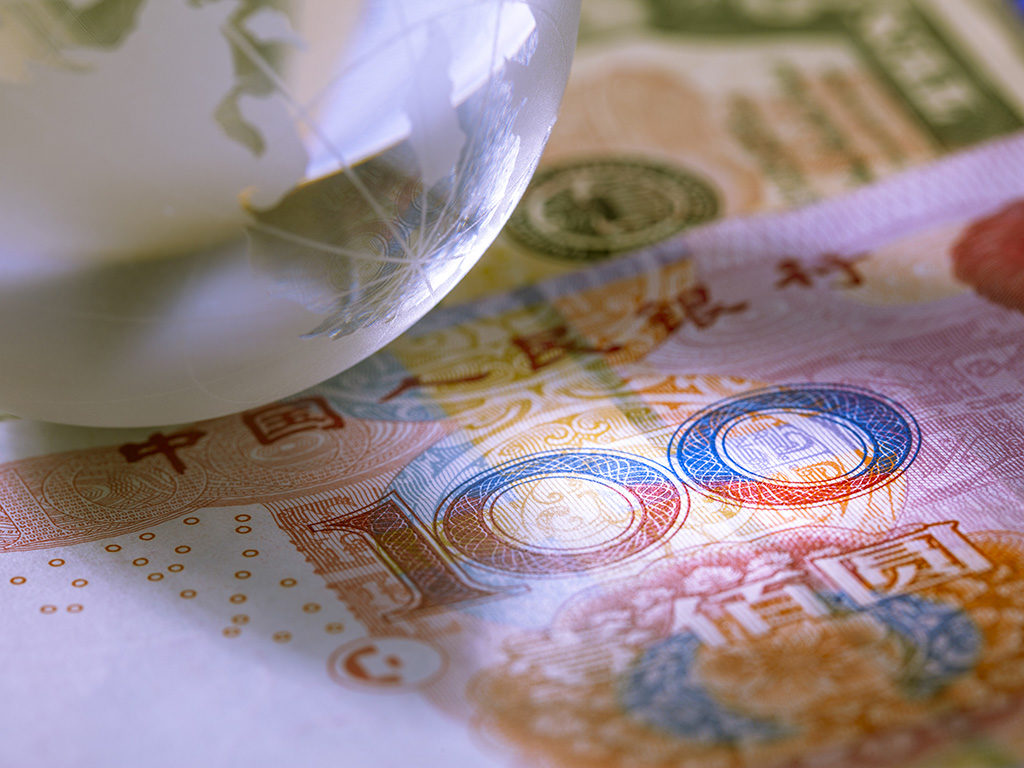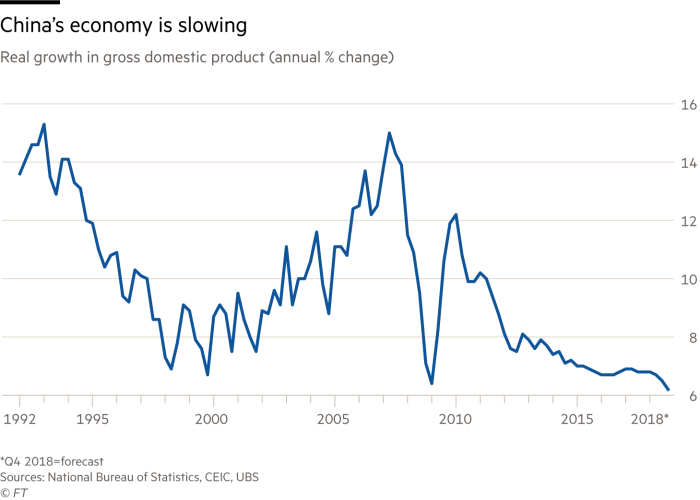The globalization of the last decades has undeniably led to less poverty and higher standards of living for a significant number of people in developing countries. It has helped reduce worldwide economic polarization at the expense of increased social polarization in the developed countries.
China is probably the most revealing success story as to how globalization worked its wonder on an emerging economy. However, the Chinese case also points out a reality which appears to have been overlooked by the developed countries economic and political elite which has been promoting globalization. The rise in China`s economic clout comes as well with a whole host of ambitions to be a regional, even global, power.
 Many analysts continue to treat China with condescension when they notice, rightly so, that from a military perspective, the country is far from having a global reach and remains without a doubt less relevant than the US. If we take, for example one of the crucial elements in power projection, the US has 11 aircraft carriers while China has only 2. That does not stop its ambitions to hold regional military dominance. As it were, the tense encounters between the ships of both sides in the South China Sea are a telling example.
Many analysts continue to treat China with condescension when they notice, rightly so, that from a military perspective, the country is far from having a global reach and remains without a doubt less relevant than the US. If we take, for example one of the crucial elements in power projection, the US has 11 aircraft carriers while China has only 2. That does not stop its ambitions to hold regional military dominance. As it were, the tense encounters between the ships of both sides in the South China Sea are a telling example.
Aware of the time and resources that it takes to become a global military power, China has decided to conquer the world not through military strategies, but by deploying economic tactics of military precision. These are meant to secure both resource supplies to an ever-thirstier economy and geopolitical influence over wide areas of interest. They put the huge amounts of money amassed during trade surplus years to good use. First in the line of fire was Africa where China started by investing in the mining and energy industries, of particular interest to the Chinese economy.
But they took it a step further. The initiation of the “Silk Road” project saw over $700bn worth of funds invested in infrastructure projects in over 60 countries. On the record, the goal was to drive international trade and regional cooperation, but the indirect consequence was increased Chinese influence in beneficiary countries.
The moment of realization for the US came when China gained a foothold in Latin America, North America`s “backyard”. Those who for a long time thought that China was just the obsession of the new American president later realized that president Trump was simply echoing the stance of the entire ruling elite in the States with regards to China`s emerging global status. This was brought into sharp focus with the delivery by US Vicepresident Pence of his famous speech at the Hudson Institute last autumn which was seen by some analysts as a foreword to a new “cold war”. And to make sure that there is no room for doubt, the US National Defense Strategy as well as its National Security Strategy identify China not just as a military, but also as an economic rival for technological dominance.
Will the Chinese economy be able to bear the weight of its newly-acquired geopolitical position, a place that it so coveted?
China`s main problem is the increasingly strict political control over both society and economy. Some estimates say that there are 200 million surveillance cameras scattered all over the country, especially the cities. Officially they are meant to lower crime rates, but they also come in handy when keeping in check social movements. The mechanism plays a decisive role in the “social credit” system which scores individuals based on the “appropriateness” of their behavior. In 2018 alone these scores prevented millions of Chinese from taking the train or the plane. (according to the AP)
Meanwhile the Chinese economy has produced what seems to be a series of global behemoths which are hard to ignore: Alibaba, Lenovo or Huawei. In addition, China, through its investments, wants to make sure that it stays at the forefront of the technological revolution. Two thirds of the global investments in artificial intelligence are said to take place in China. But this is just a portion of the visible side of the Chinese economy. There are also less encouraging statistics.
 The Chinese economy is slowing down and the official figures are met with increased skepticism by analysts. Even if we took the 6% growth in 2018 to be correct, the trend shown in the graph courtesy of the FT is clear. Other symptoms include dropping birth rates or lowered initial pollution targets for fear of a negative economic impact that related costs might have.
The Chinese economy is slowing down and the official figures are met with increased skepticism by analysts. Even if we took the 6% growth in 2018 to be correct, the trend shown in the graph courtesy of the FT is clear. Other symptoms include dropping birth rates or lowered initial pollution targets for fear of a negative economic impact that related costs might have.
Even the Silk Road initiative has lost some of its initial momentum as some beneficiary countries are starting to wonder about the profitability of the investments and the loans taken, a topic which I covered in “The illusion of a free lunch using chopsticks?” Similar questions, however, about the rational of having large stae-owned companies invest in these projects abroad at the expense of over-indebtedness are starting to emerge inside the country itself.
And to top it all up, came president Trump`s move to impose tariffs on $250bn worth of imports from China. The Chinese economy continues to rely on exports and any step towards restrictions will have an adverse impact on several areas: foreign investments, consumer confidence, investments, etc.
Whereas the US has always watched with some concern China`s rise to power, Europe comes as a surprise. Until a few years ago, Europe insisted to be a close economic partner of China, immune to any calls for restraint or caution. The Europeans, however, are making a U-turn on their attitude.
The European Commission`s economic strategy discussed in March named China “an economic competitor in pursuit of technological leadership, and a systemic rival promoting alternative models of governance”. The European strategy which used to rely on the fact that economic benefits take precedence in its relations with China seems to have changed once it became clear that the economic benefits tended to increasingly tip the balance in favor of China which has been exporting subsidized products and making aggressive strategic purchases of cutting-edge European technology.
The shift in the European attitude increases the chances of a transatlantic cooperation in the economic dealings with China, and developing countries` opportunities to take on a new role as an alternative to what China has to offer. That so far has been almost impossible to achieve.
The long-term upside for the US and the EU remains the fact that as long as the Chinese political system continues to tighten its grip on people`s private lives, the country`s soft power will be at a permanent disadvantage. It will only have economic and not political content.
The transatlantic coordination, however, in their relationship with China seems to rather be a thing of the future and will require the American president to change his perception of an EU “worse than China”. For the time being, both the US and the EU are rather going it alone which makes it much easier for China to spread its power beyond its regional reach.
Have a nice weekend!



